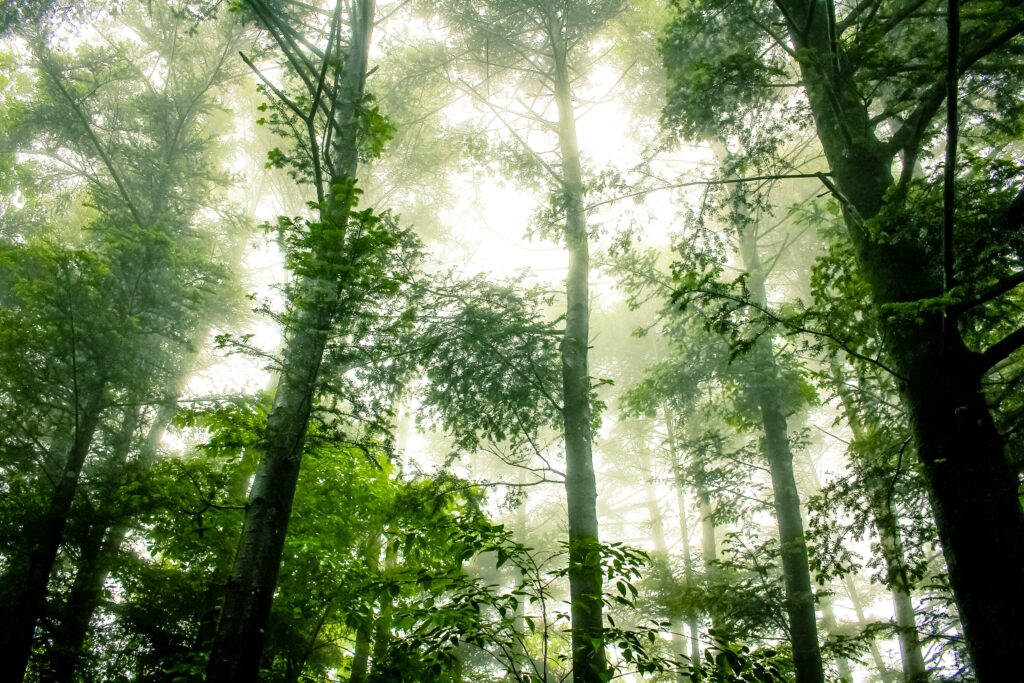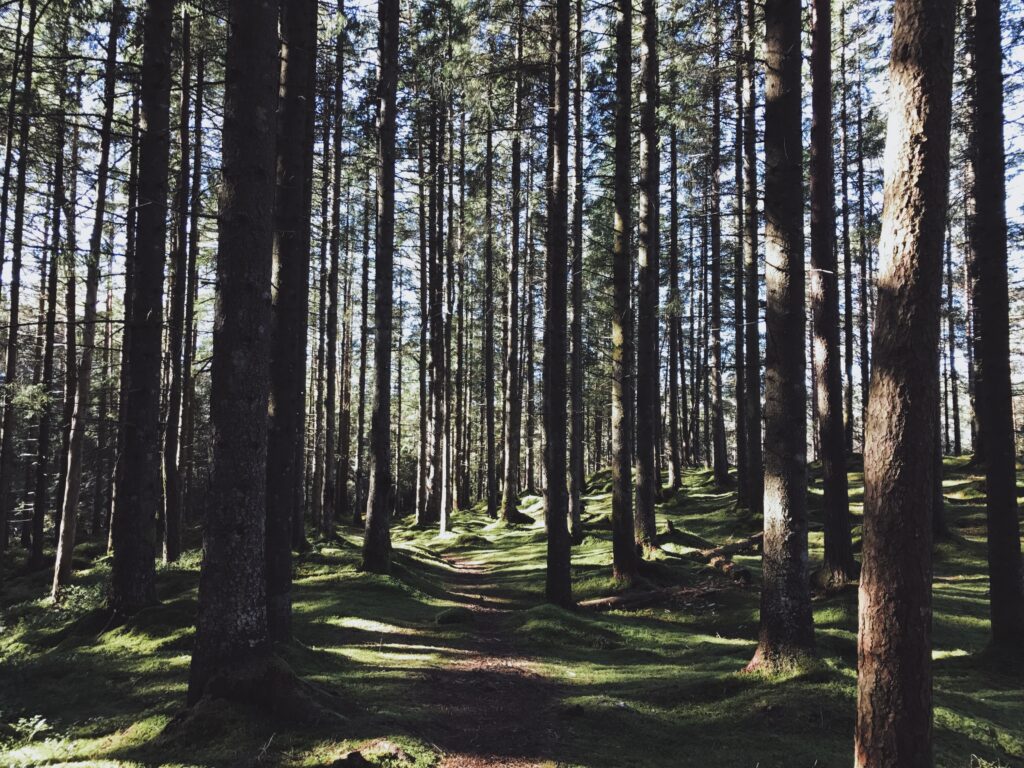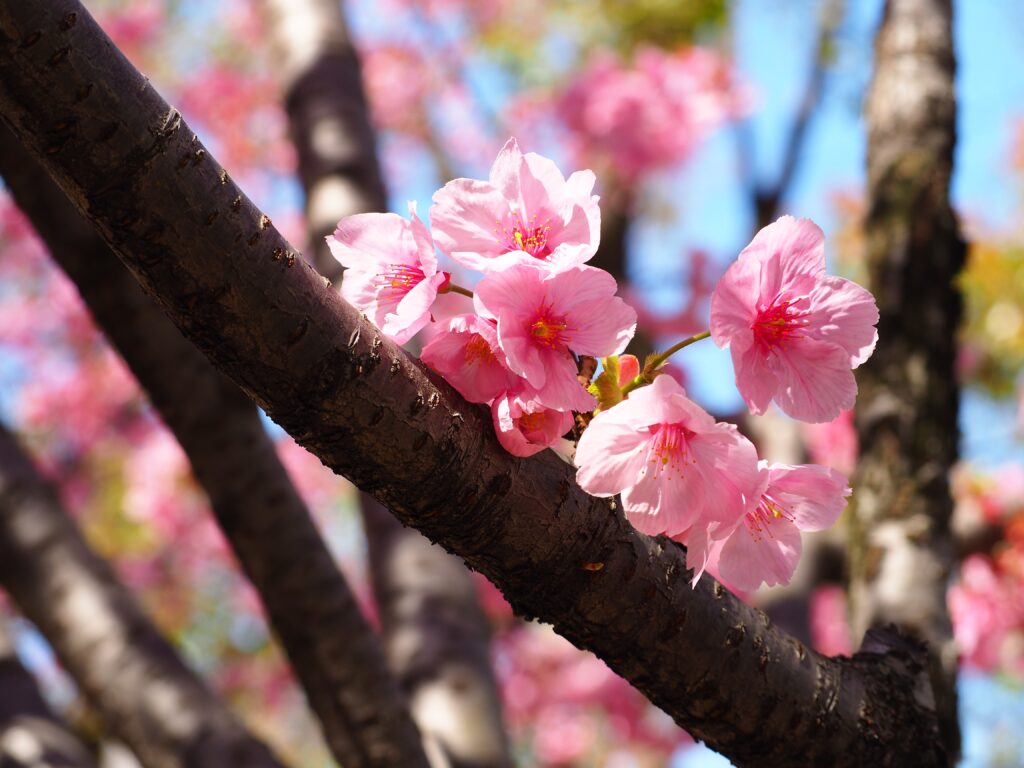Examples of Forest Bathing as a Way of Life around the Globe
As you may well know, Forest Bathing (or Shinrin-Yoku) originated in Japan in the 1980s, however forest bathing is now a way of life in many countries. Learn more about the practice in my What is Forest Bathing blog post.
It’s widely recognised now that a connection with nature reduces stress and promotes mindfulness. Hence Forest Bathing as a therapeutic practice is becoming an ever more popular and indeed a global phenomenon.
Forest Bathing in Japan
Shinrin-Yoku is very much part of Japanese culture, which is known for its appreciation of nature and for finding beauty in simplicity.
When did Forest Bathing become a way of life in Japan?
Forest bathing as a medicinal practice in Japan goes back to the 1980s. This was when the government began to notice the adverse effects of the tech boom and lack of outdoor time on Japanese city dwellers, such as depression, distraction and aches and pains. You probably also recognise that it’s difficult to truly relax in cities, with sensory overload caused by heavy traffic, dense populations and long hours spent in offices.
Dr Qing Li, MD, PhD is a doctor at Nippon Medical School in Tokyo, president of the Society of Forest Medicine and author of ‘Forest Bathing: How Trees Can Help You Find Health and Happiness’. It’s a brilliant book. He identified a nature deficit disorder in society, which contributes to negative feelings about life, but can be significantly improved by just a few hours of Forest Bathing. Read more.
The Japanese language
Even the Japanese language reflects the zen-like beauty their culture emanates. There are hundreds of untranslatable Japanese words that relate to nature and have no English counterpart. Some of my favourites:
- ‘Komorebi’ describes a beautiful forest with sunbeams of light peeking through the leaves of the trees.
- ‘Hanafubuki’ refers to the way cherry blossom petals float down en-masse like snowflakes in a blizzard.
- ‘Kawaakari’ refers to light reflected off a river at night.
- ‘Wabi sabi’ is the phrase used to describe the sheer delight felt in one’s soul when finding beauty in imperfection and simplicity.
Each word conjures up an entire landscape in the mind’s eye.
In fact, translating Shinrin-Yoku to Forest Bathing doesn’t really do the experience justice. It should really be Forest ‘soak’ or Forest ‘drench’ to get the true sense of the meaning from the Japanese.
Guided Shinrin-Yoku tours in Japan
To help me really understand the origins of Forest Bathing, as well as the Japanese culture, I am lucky enough to be in contact with Makiko Sugishita (木下), a lady who lives in Yakushima, Japan and is training to become a certified Shinrin-Yoku guide. She’s had her own deep nature connection experiences and she shared with me:
“When I encountered ancient Japanese cedar trees, they made me cry with joy… it felt as if they were bringing back long-forgotten, beautiful memories“.
She also loves to see her customers open up to nature and trees, and recalls one recent customer saying, “it feels like my tree told me I can be who really I am”.
If you’re hesitant to attempt forest bathing alone, Japan has you covered. All over the country, centres specialise in the practice and offer organised tours based on your personal needs. With the aid of a guide or therapist like Makiko, visitors learn how to stop and appreciate the nature around them—perhaps even finishing the day with a tea ceremony—and go home relaxed and rejuvenated.
Makiko is able to guide in both Japanese and English language, and I for one will be joining one of her sessions when I finally get to visit. Are you joining me?

Forest Bathing as a way of life elsewhere in Asia
But it’s not just in Japan that the practice of Forest Bathing has received support, since it’s also popular in South Korea.
South Korea
The country has a Korea Forest Service and 34 National Healing Forests. They have embarked on a national training programme that includes 500 Forest Healing instructors – a profession with high status in Korea which requires a graduate-level qualification. 82% of Koreans already visit forests more than once a year, and the frequency of their visits is rapidly increasing as the evidence grows for the health benefits of engaging with nature.
The Forest Service now regularly takes blood pressure and heart rate variability measures and is assembling a large database that will be used to work out an individual’s ‘necessary dose’; for example, is one walk a week in the woods enough to maintain low blood pressure, and how frequently do we need to ‘top up’?
Singapore
Singapore spends $150 million per year ‘to develop scenery’ (0.6% of its national budget) and as such it’s now one of the top ‘biophilic’ cities in the world. There is quite a following with Forest Bathing groups meeting in urban parks and botanical gardens, as well as the beach, due to the absence of forests. It just shows that with a bit of innovation, Shinrin-Yoku can take place anywhere. And indeed the popular events I run in Exbury Gardens in the New Forest and Sir Harold Hillier’s Gardens in Romsey are adapted to make the most of the beautiful gardens.
Forest Bathing in Europe
A connection to nature is also embedded in the Scandinavian culture, similar to Japan. They believe that nature helps support physiological and mental health.
Norway
The expression Friluftsliv (pronounced free-loofts-liv) literally translates as “open-air living”. They use the term to describe the value of spending time in remote locations for spiritual and physical wellbeing.
It’s very much a way of life now, and employees are encouraged by employers to spend time outdoors during their working hours. Ninety minutes on a Wednesday afternoon is the standard time slot.

Finland
Finland’s reputation as one of happiest nations in the world (ranked number one out of 156 countries in 2018 World Happiness Report) is often assumed to be due to its low-income disparity. But it may also, at least in part, be due to nature: Finland is the most forested country in Europe. Most Finns regularly access its lakes, forests and coasts to conduct national obsessions of fishing, mushrooming, berry picking, lake swimming and Nordic skiing.
The Finnish Government recently invested $16 million in a series of studies, called the Green Health and Research Project. The research concluded that five hours a month is the lowest amount of time to gain health benefits from nature, but the more the better. Following this project, ‘five-hours-a-month’ is establishing itself as a recommended ‘minimum dose’ in Finland to stave off depression, and the Finnish Government is already recognising the huge savings for the national health system.
Opportunities for guided Nature Immersion here in the UK
So, we’re a little late to the party here in the UK, however, we are at least off the mark.
Forest Bathing is now prescribed as a ‘green social prescription’ in Surrey and Scotland. The University of Derby is also carrying out research into the benefits of Nature Connectedness, as I write.

Forest Bathing in Hampshire, Berkshire and Wiltshire
If you’re in Hampshire or Berkshire and you’d like to try Forest Bathing, then you are in luck!
I run guided Nature Immersion events right here in the south of England for organisations looking for a new, meaningful and science-backed way to reconnect fragmented teams and boost productivity.
I am also proud to be promoting and running Forest Bathing classes and I would love to guide you on a nature-based mindfulness session. You can join a general public session, attend one of my retreat days in Salisbury or book a private event for a big birthday or hen do. Find out more.
I look forward to showing you how to develop and deepen your connection to nature and discover the extraordinary in the ordinary. Once you have started to see nature with new eyes, really notice nature, you never go back. It is transformational. Read more about the practice, benefits and what happens on a typical session.
Spreading the word about Forest Bathing as Way of Life in Hampshire…
I don’t want Forest Bathing to remain a secret! Let’s spread the word far and wide.
I offer Zoom sessions to reach those outside of my local area…last night I was joined by participants in their gardens in Wiltshire, London and Staffordshire. I also offer family sessions to help Forest Bathing become an ingrained practice in the next generation.
Follow, like and share my posts on social media – together we can help more people benefit from this wonderful practice of nature-inspired mindfulness and relaxation.
Stay wild,
Sonya

